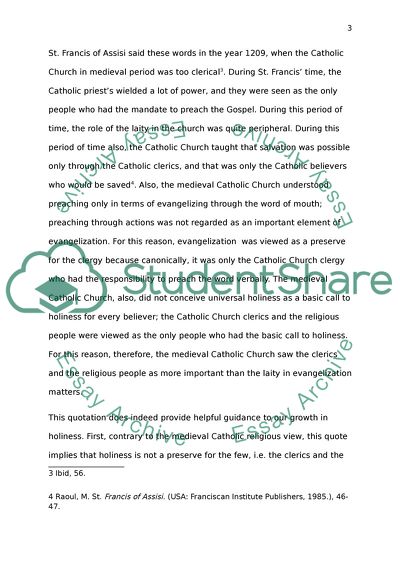Cite this document
(The Wisdom of the People of St Francis of Assisi Research Paper Example | Topics and Well Written Essays - 1500 words, n.d.)
The Wisdom of the People of St Francis of Assisi Research Paper Example | Topics and Well Written Essays - 1500 words. https://studentshare.org/religion-and-theology/1821955-st-francis-of-assisi
The Wisdom of the People of St Francis of Assisi Research Paper Example | Topics and Well Written Essays - 1500 words. https://studentshare.org/religion-and-theology/1821955-st-francis-of-assisi
(The Wisdom of the People of St Francis of Assisi Research Paper Example | Topics and Well Written Essays - 1500 Words)
The Wisdom of the People of St Francis of Assisi Research Paper Example | Topics and Well Written Essays - 1500 Words. https://studentshare.org/religion-and-theology/1821955-st-francis-of-assisi.
The Wisdom of the People of St Francis of Assisi Research Paper Example | Topics and Well Written Essays - 1500 Words. https://studentshare.org/religion-and-theology/1821955-st-francis-of-assisi.
“The Wisdom of the People of St Francis of Assisi Research Paper Example | Topics and Well Written Essays - 1500 Words”. https://studentshare.org/religion-and-theology/1821955-st-francis-of-assisi.


